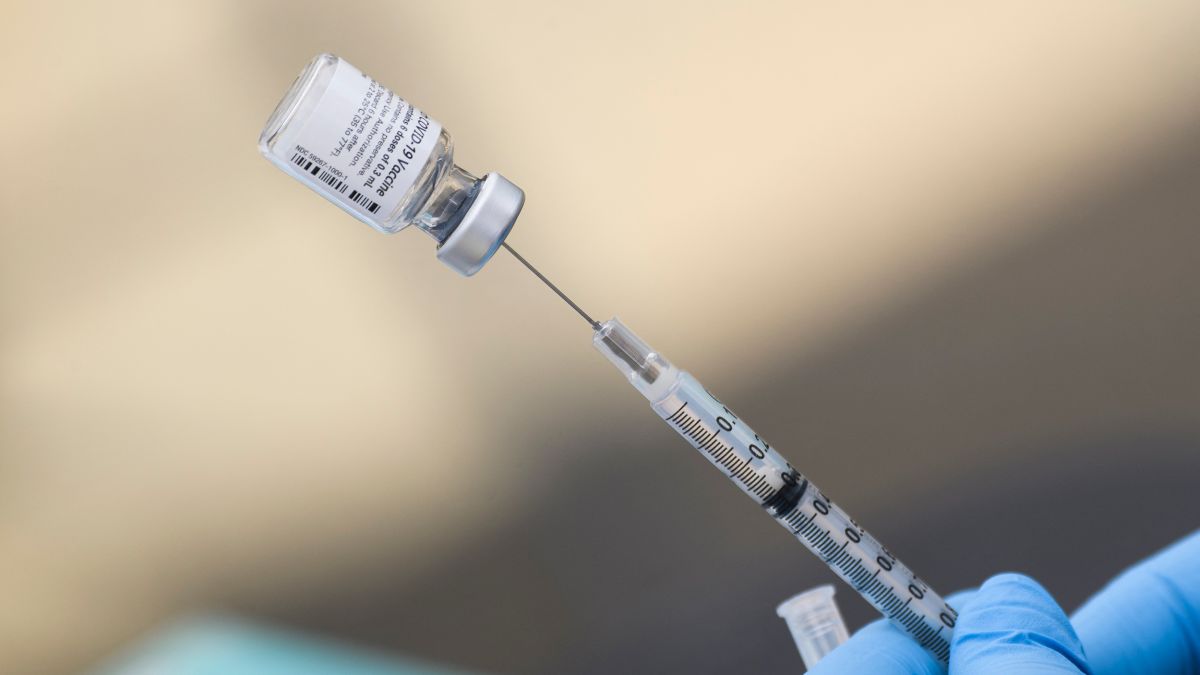Adults taking on the responsibilities and risk or either vaccinating or not vaccinating themselves against Covid-19 is one thing, but putting that responsibility and burden on young children is a whole other matter. There will be plenty of parents of kids aged 5 to 11 jumping for joy to be first in line when the FDA greenlights the Pfizer Covid-19 vaccine for their kids next week. However, there will be another set of parents, a much larger set, taking a “wait and see” approach. The reasons for hesitance vary, but mostly it has to do with the unproven nature of vaccinating children with new mRNA technology, and what kind of potential side effects may be lurking. Beyond that, children face incredibly small chances of serious complications or hospitalizations from Covid-19, so some debate remains if healthy children truly need vaccinating at all.
As one report found, even parents who were first in line for their own Covid vaccination earlier this year aren’t as eager to have their kids undergo the jab:
Sarah Beth Burwick, a lawyer in Los Angeles, said she and her husband both got their Covid-19 vaccinations at “the earliest possible opportunity” and their two children received all of their childhood vaccinations “on the schedule, without even questioning it.”
But she’s not planning to rush out to get the children, ages 5 and 2, vaccinated against Covid, even though one of them could be eligible as soon as next week.
“There would need to be information out there to convince us it was necessary first,” Burwick, 37, said. “I would say I think it’s unnecessary. And I’m uncomfortable with how quickly it’s rolling out with such a small study.”
Call it hesitance or call it just plain good parenting to weigh the risks both ways and decide what is best for your own children. The study relied upon by the FDA was relatively small, just 1,500 kids aged 5-11 received the Pfizer dosage, while another 750 received placebo. One of the most dangerous side-effects, heart inflammation, is likely to be seen in about 1 in 9,000 children according to data, so the sample size for the vaccine trials in children under 12 seems inadequate.
When the FDA advisory panel voted, the result was 17-0-1. The 1 was the lone abstainer, a doctor by the name of Dr. Michael Kurilla, who expressed concerns that otherwise healthy children shouldn’t necessarily have the Covid vaccine pushed on them unnecessarily, especially without the risks fully known yet:
Kurilla says there are children at high-risk of severe Covid due to underlying conditions who would benefit from the shot, but he’s not sure if this applies to all kids in this age group.
Additionally, he said that kids who have been infected with Covid in the past already likely have immunity because of it.
Kurilla added current data does not suggest the vaccine’s protection will last long enough and he is worried that antibodies will wane in children as has been seen in adults.
For high-risk children, with asthma or other comorbidities, it may be a no-brainer that the risk of contracting a bad case of Covid-19 outweighs the potential risk of the vaccine. For children without any major chronic health issues, however, Dr. Kurilla wasn’t convinced:
Kurilla said he does not doubt the efficacy of COVID-19 vaccines and that is a big reason why he abstained rather than voting ‘no.’
‘A vote “no” would have been interpreted as a vote against the vaccine itself rather than the administration of the vaccine,’ he said.
‘There clearly are children with risk factors who could potentially benefit from a vaccine, but I don’t see the need for “emergency use” of this vaccine across the entire age group and would have preferred a more nuanced approach.’
Dr. Kurilla is fully behind the vaccine, hence his decision not to vote against the authorization for young children, but to abstain and voice his concerns over the immediate need for emergency authorization in such a rushed manner.
Amazingly, the FDA panel felt that the Pfizer trial wasn’t large enough, yet still voted to recommend the vaccination for children aged 5-11 despite misgivings:
Just over 1,500 children ages 5 to 11 received the vaccine in the Pfizer trial (another 750 received a placebo).
Side effects of the vaccination included sore arms, fever and muscle aches. However, the FDA said that Pfizer’s trial wasn’t large enough to detect extremely rare side effects, including myocarditis that’s been observed after the second dose, particularly in younger men and teenage boys. There were no cases of myocarditis in the trial of young children.
According to recent polling, only about 30% of parents want to get in line to get their young children vaccinated, suggesting a substantial barrier for states and local governments wishing to institute a vaccine mandate to attend public school. These parents aren’t “anti-vax” and they don’t hate “science,” but they do love their children and don’t see the need, based on living with Covid in society for over a year, to give their children experimental drugs for a disease with a 99.9% survival rate among kids.
For what it’s worth, Dr. Anthony Fauci says he would vaccinate his young child in a heartbeat if he could. Then again, Fauci sees Americans as lab rats and supports spending money to have dogs tortured to death in the name of science, so maybe count that a strike against child Covid vaccinations.
If schools thought they had a fight on their hands over universal mask mandates, just wait until the battles over mandatory Covid vaccinations for grades K-12 break out around the country.
Donate Now to Support Election Central
- Help defend independent journalism
- Directly support this website and our efforts
